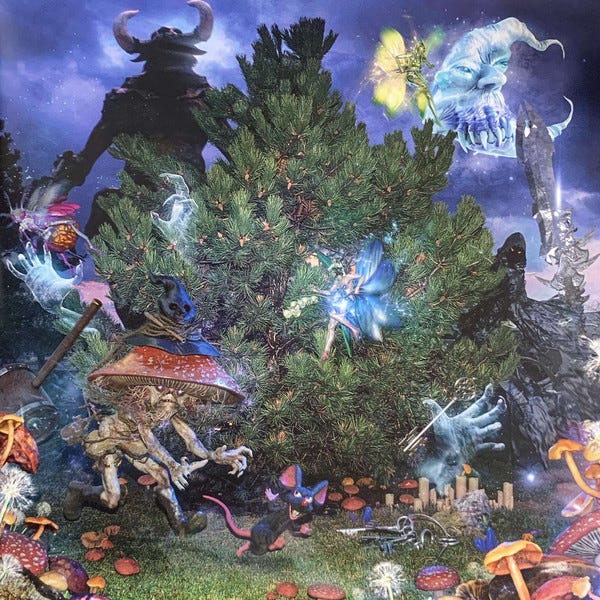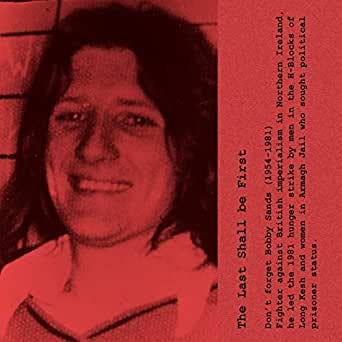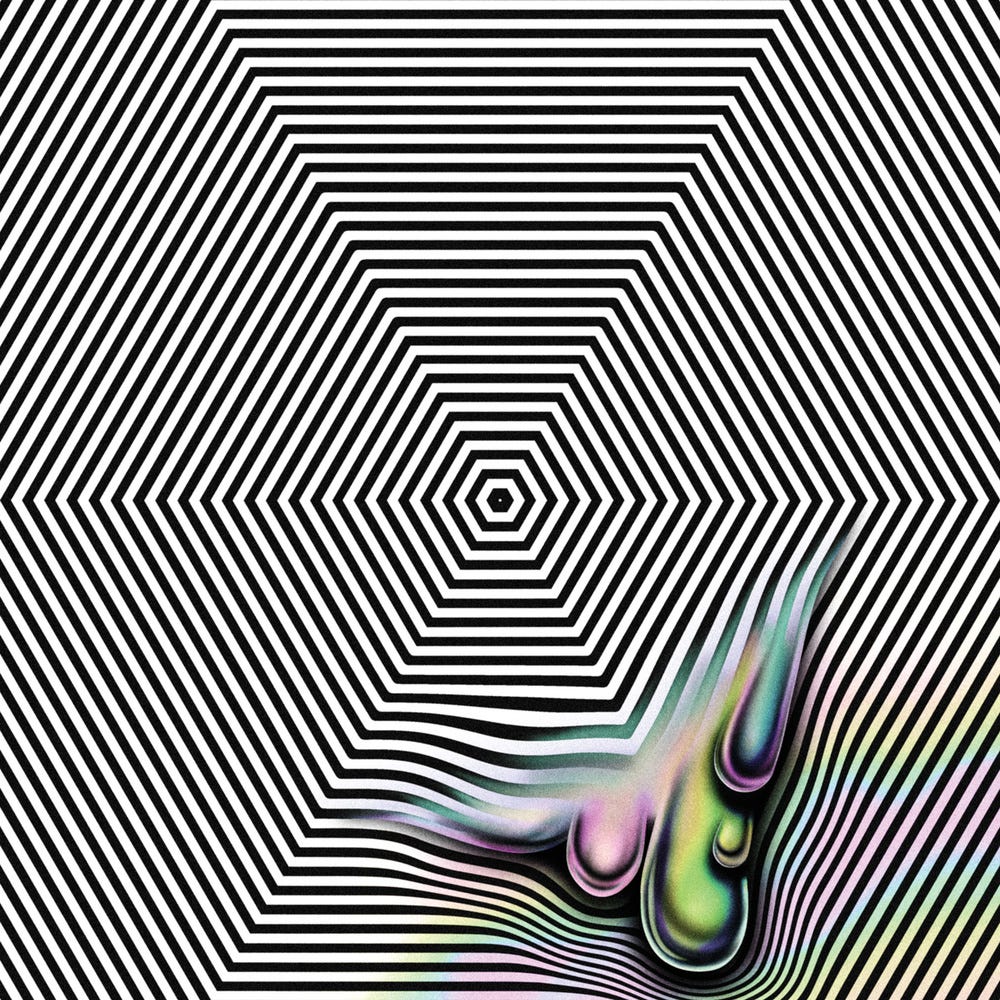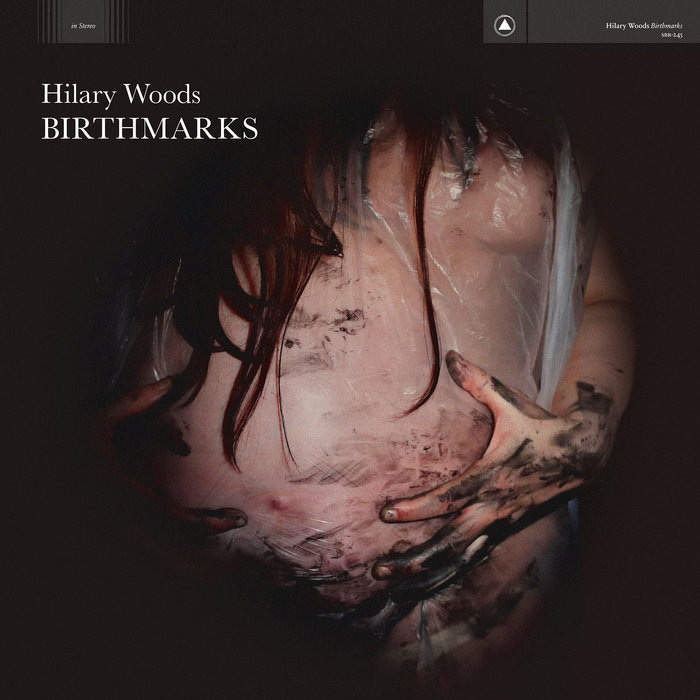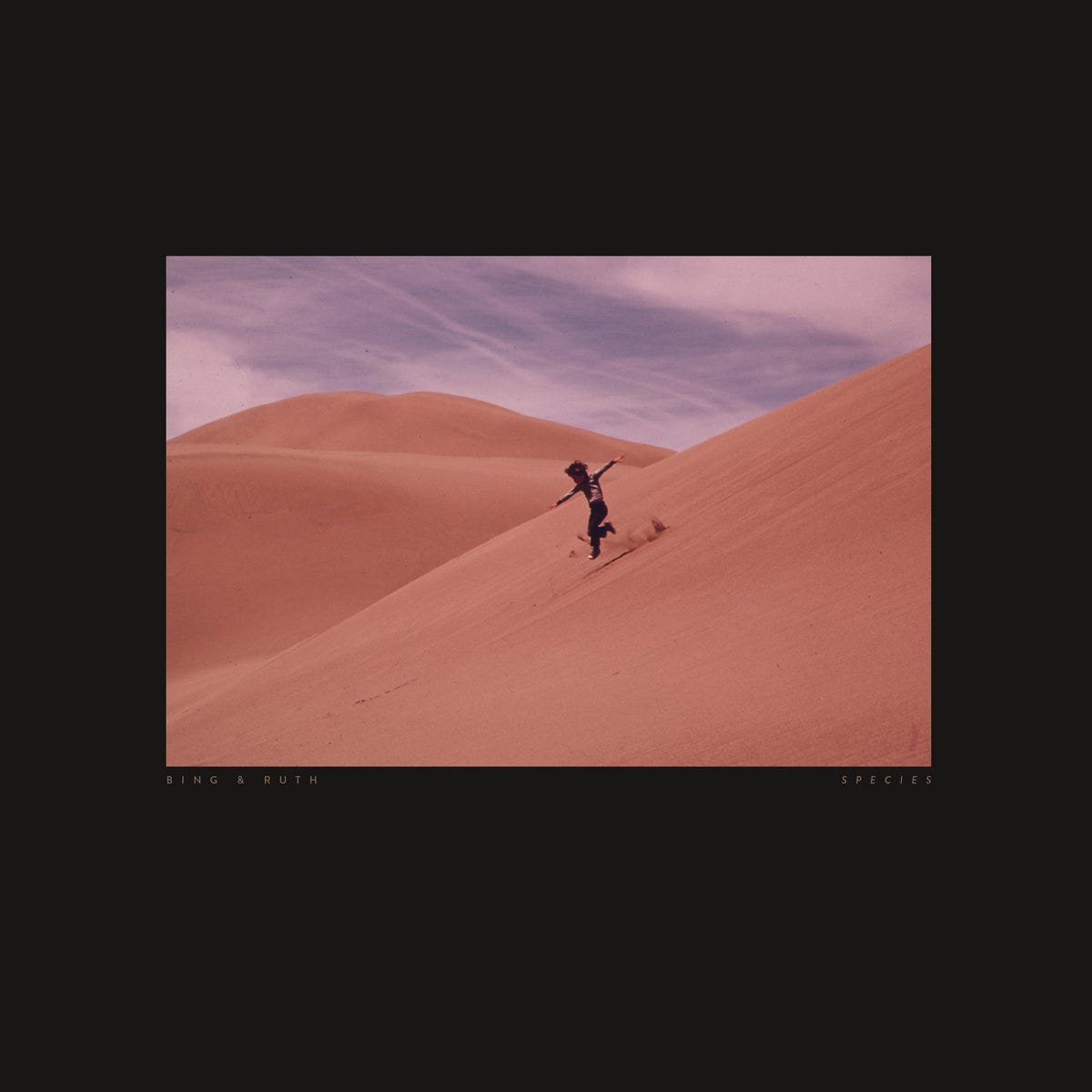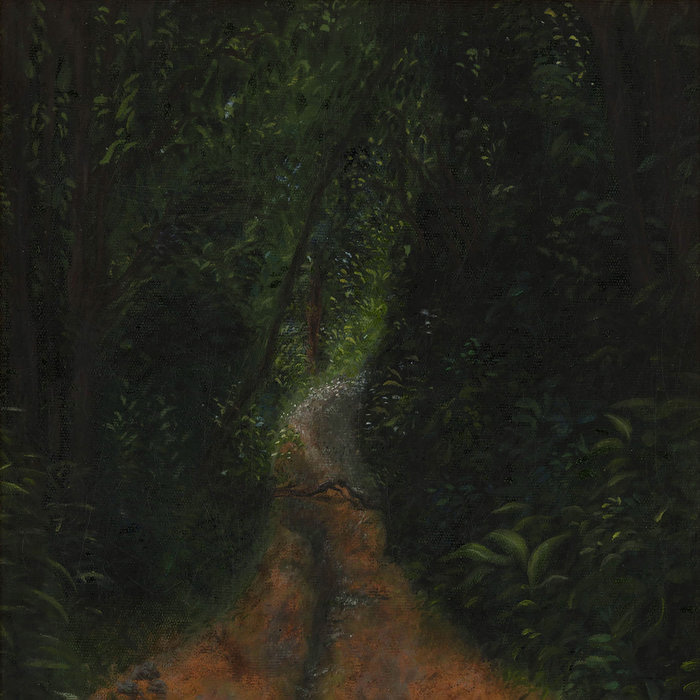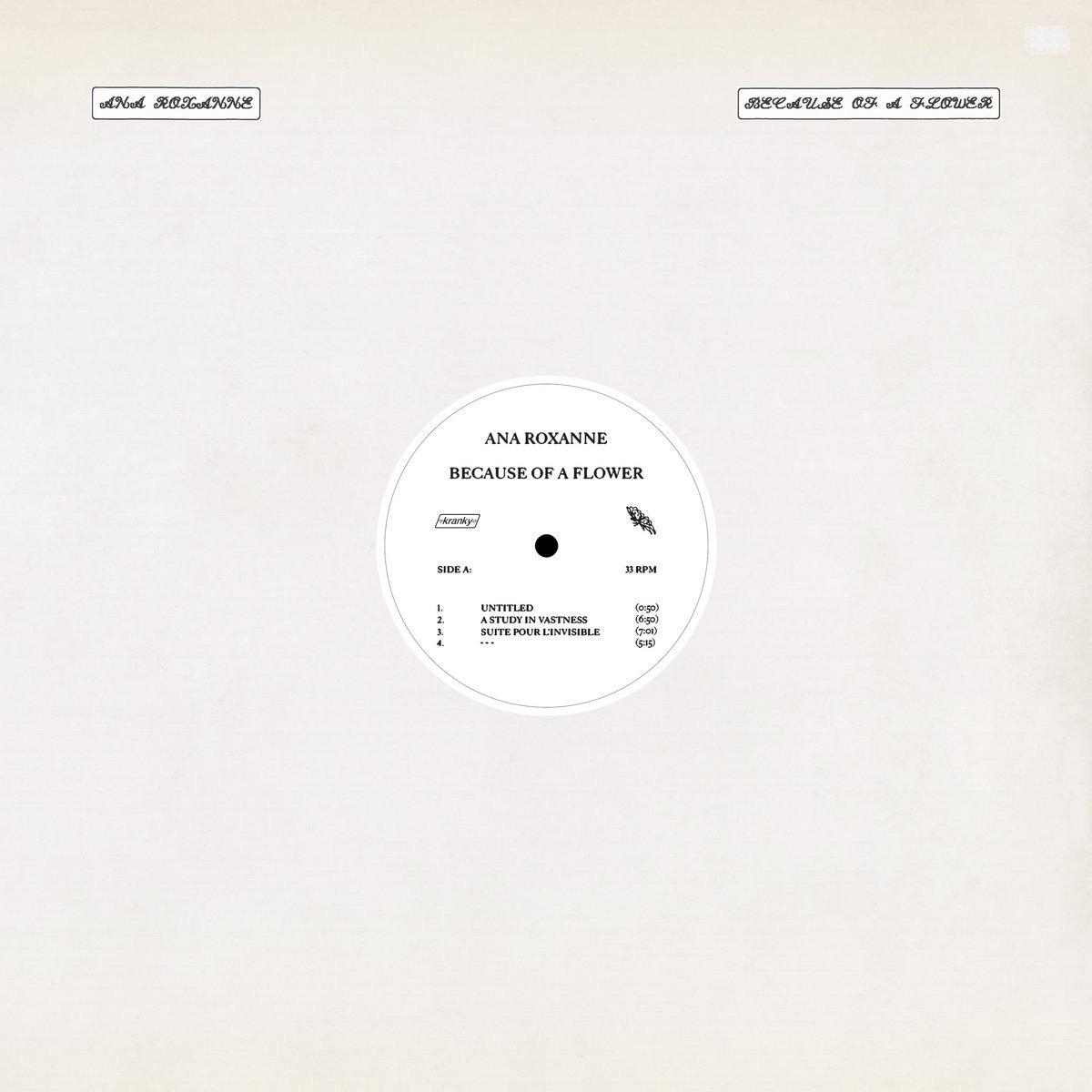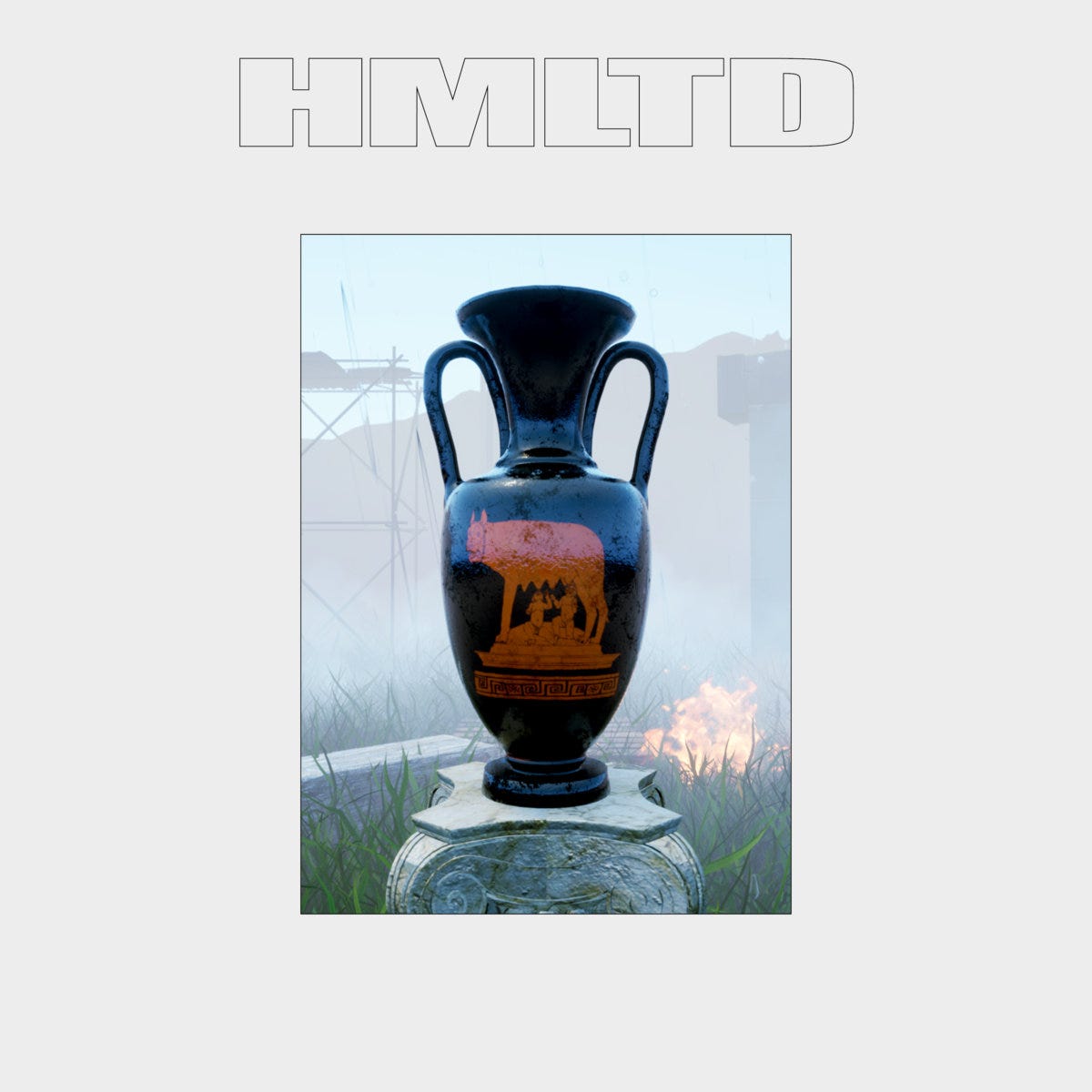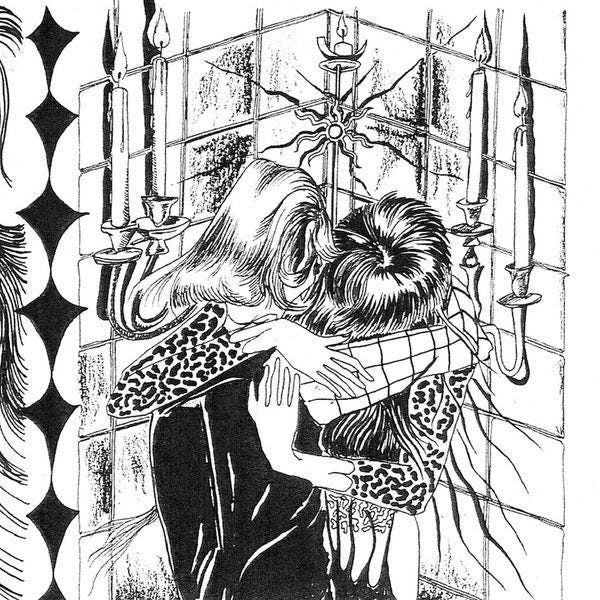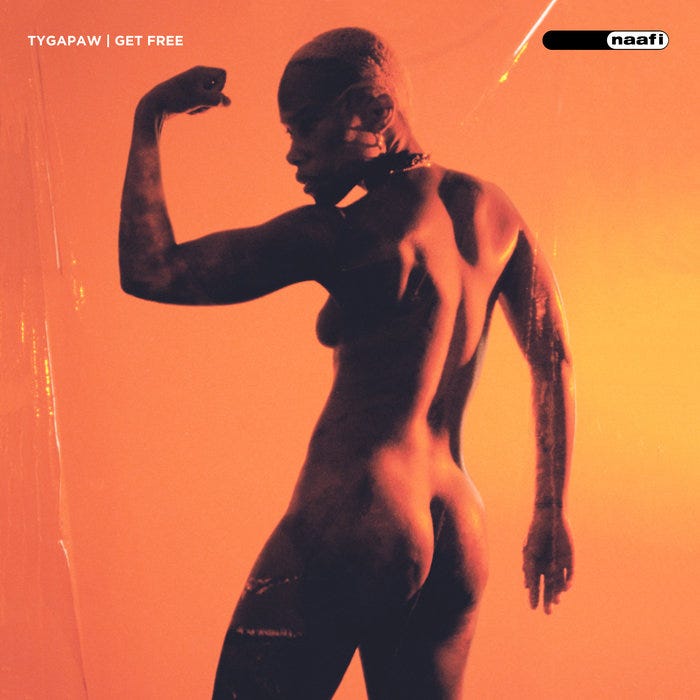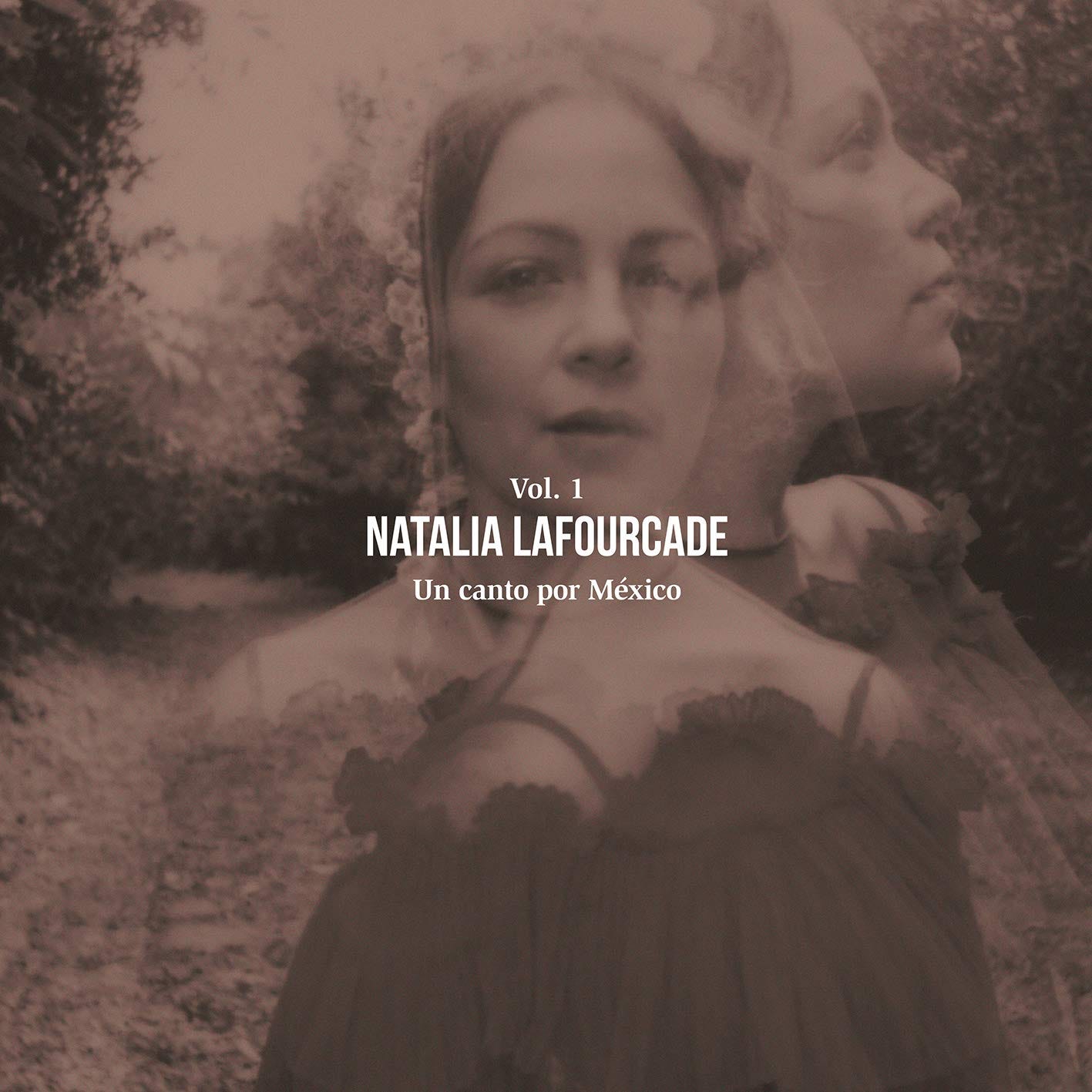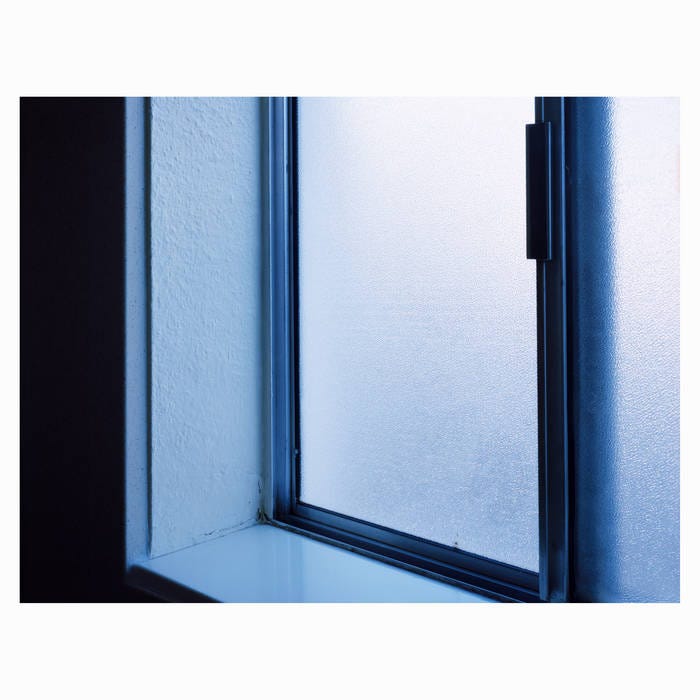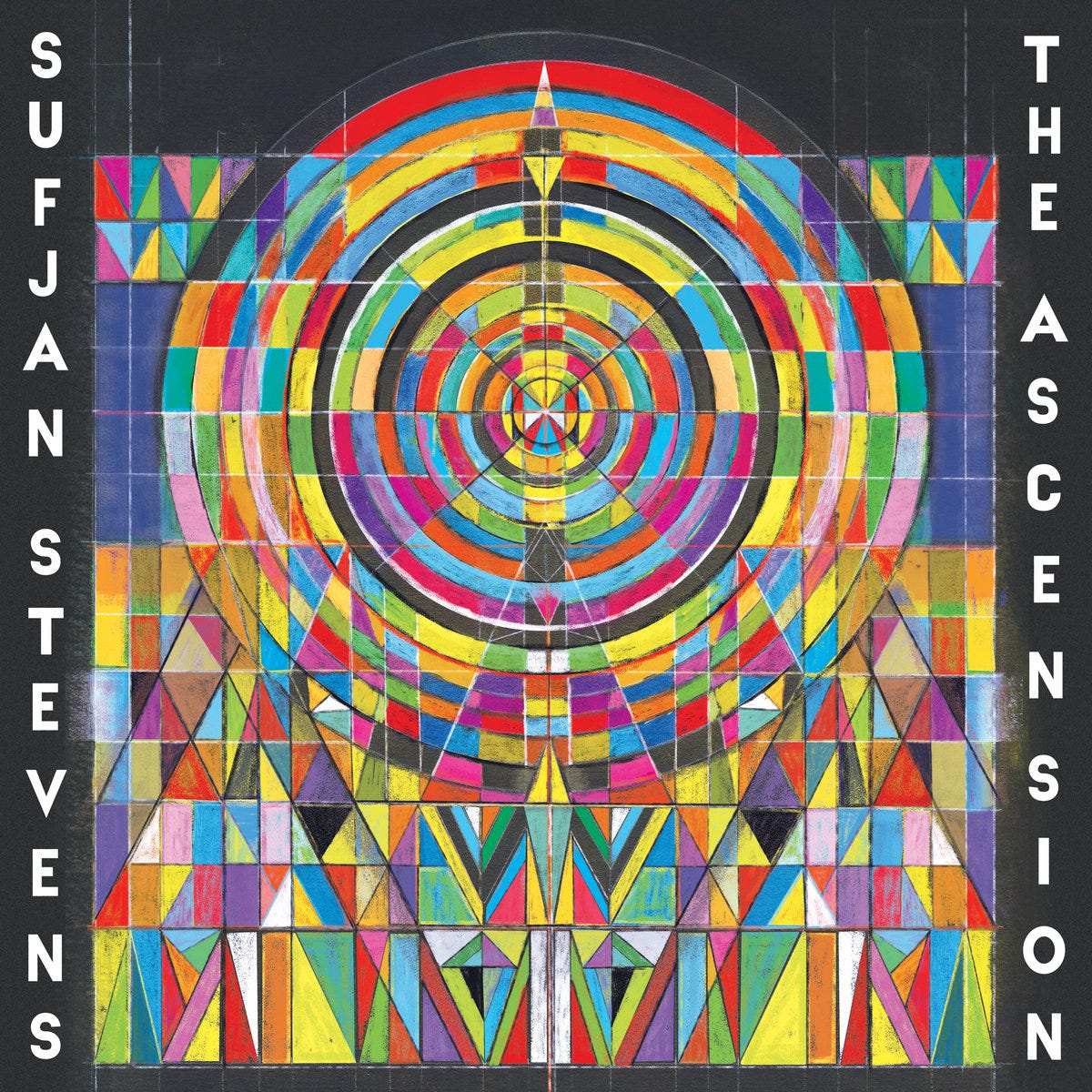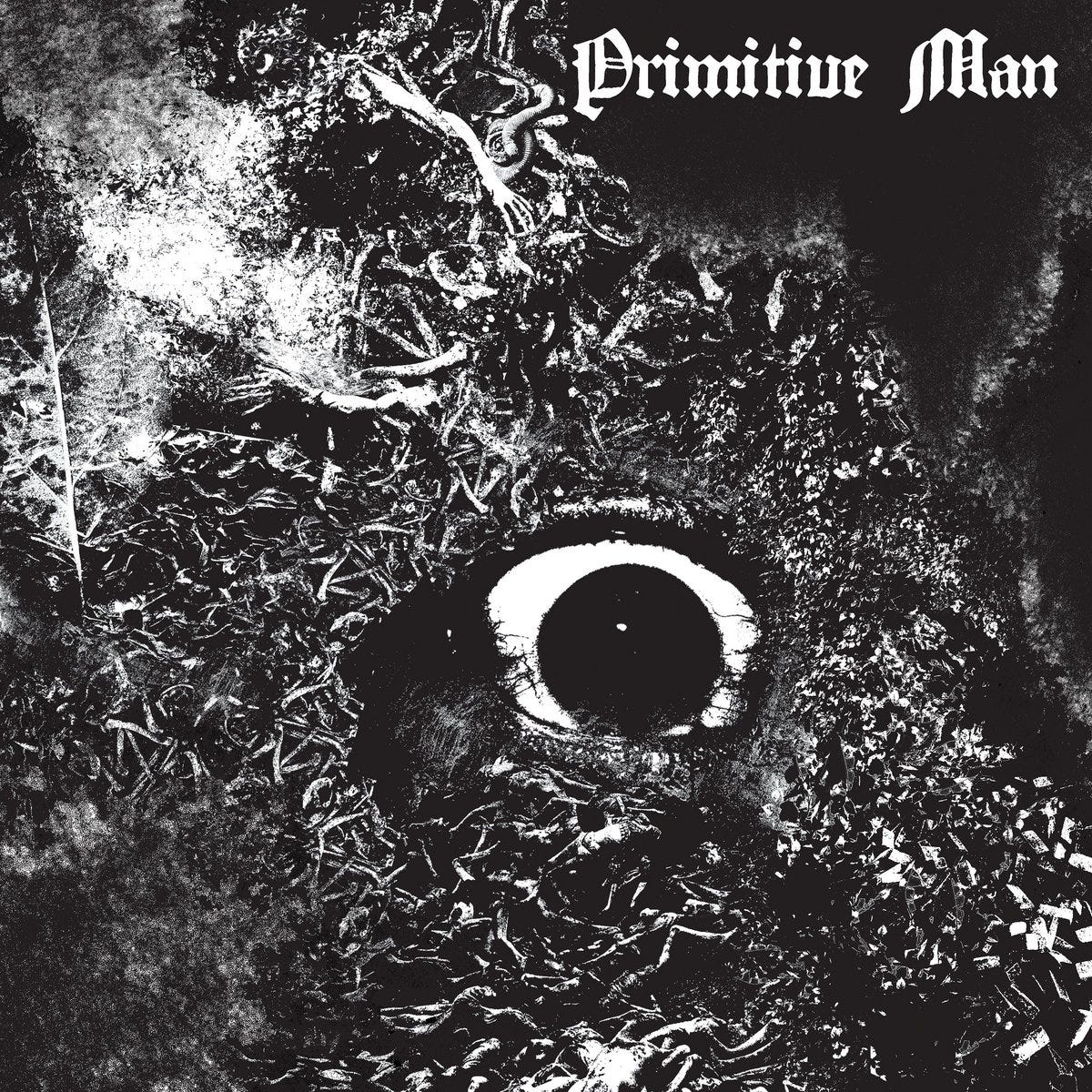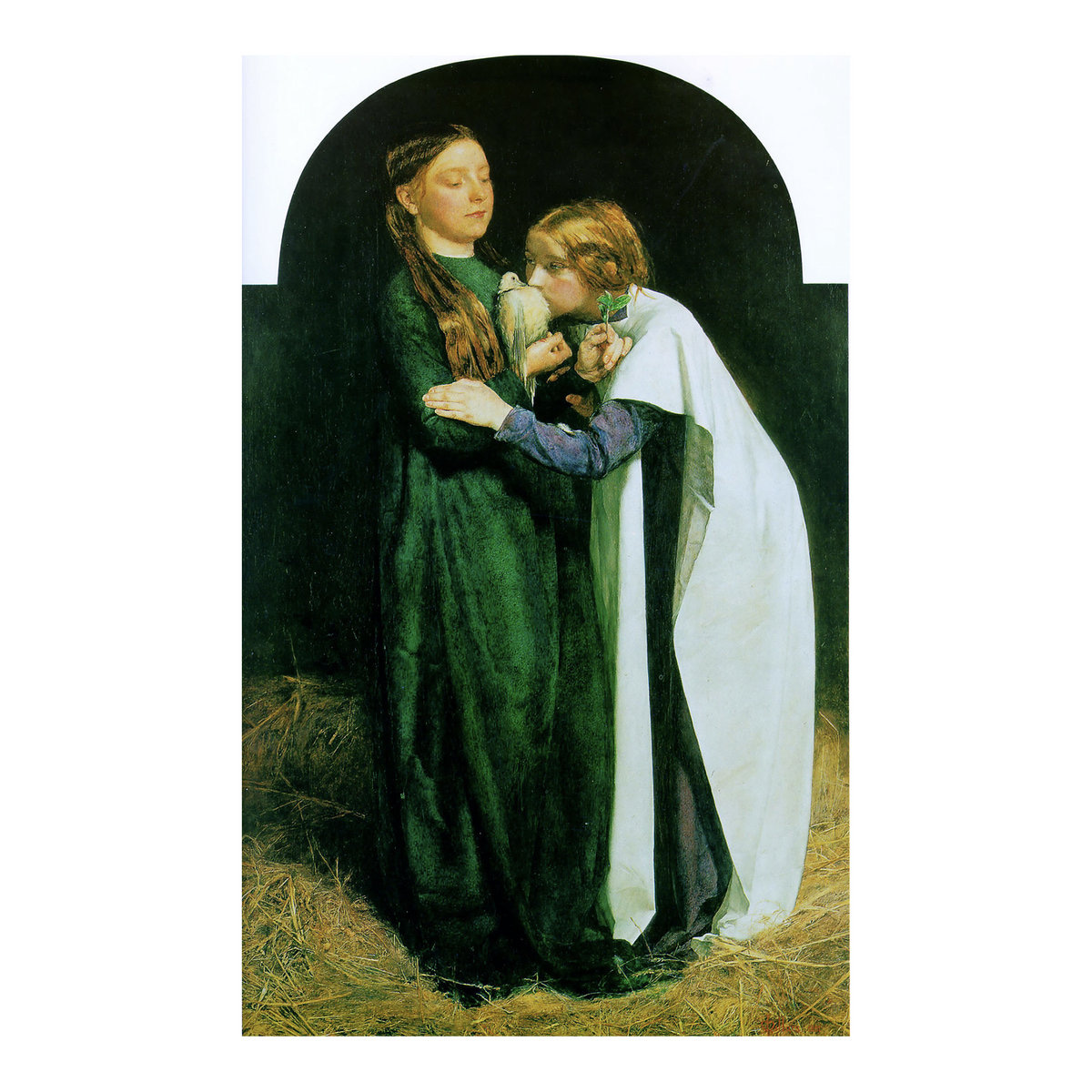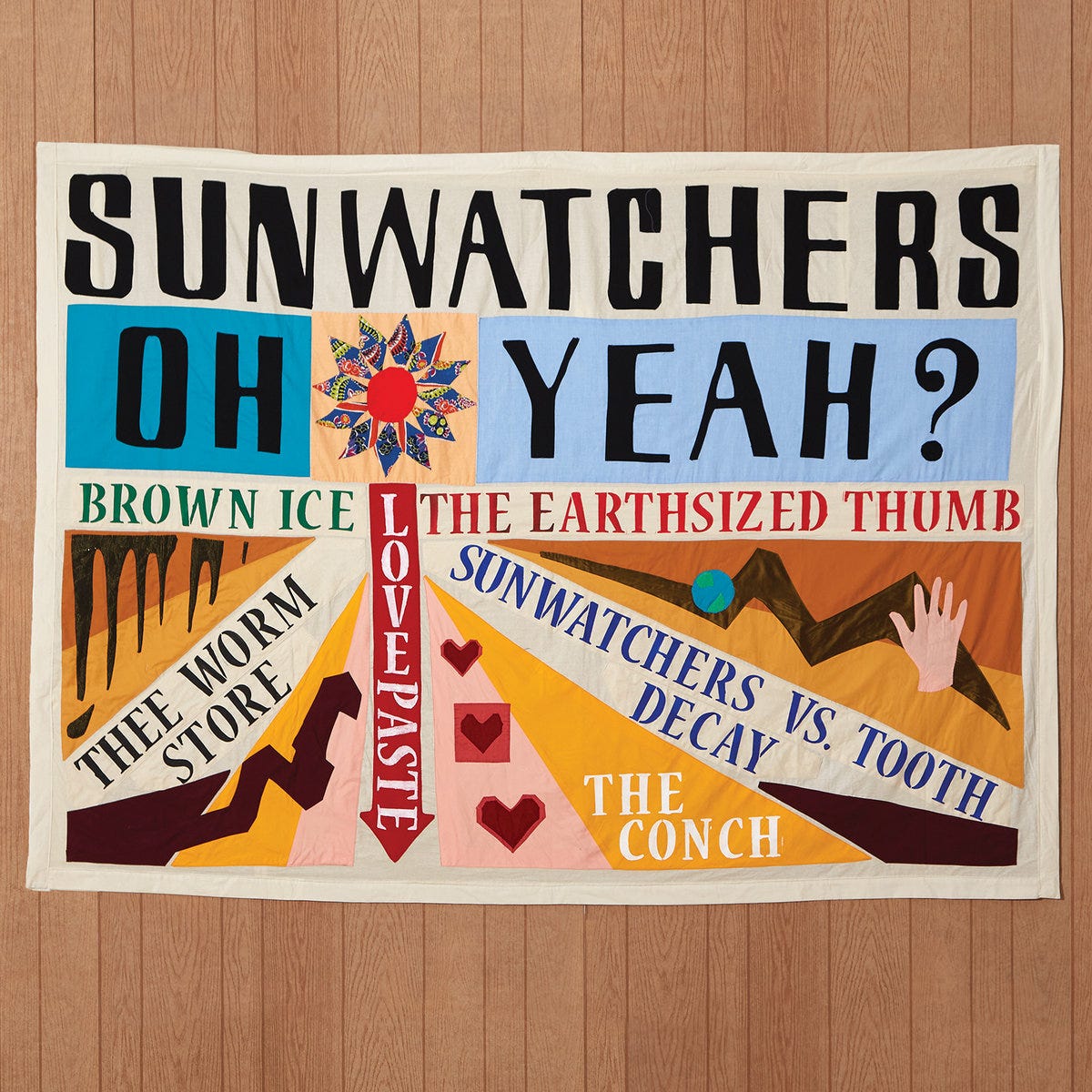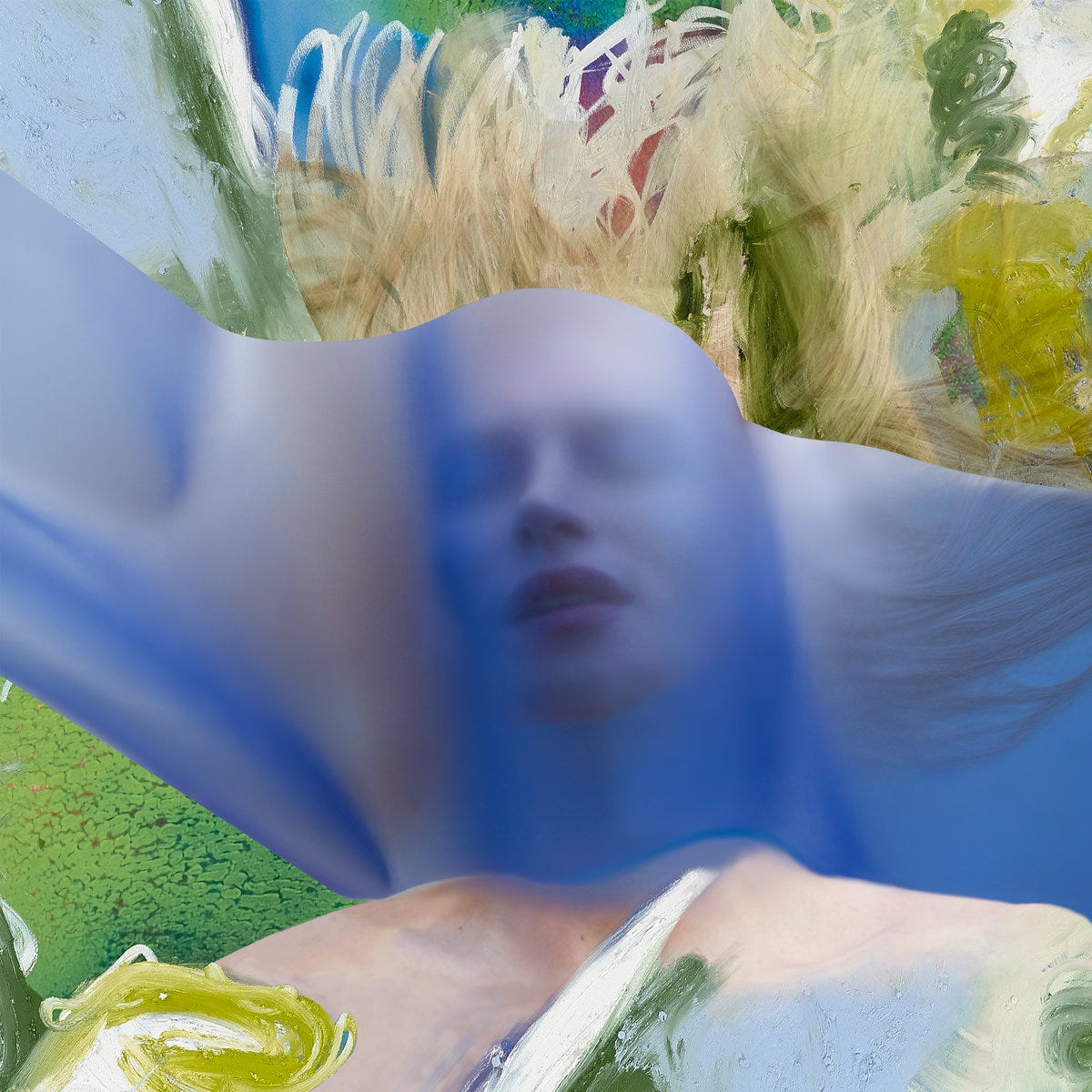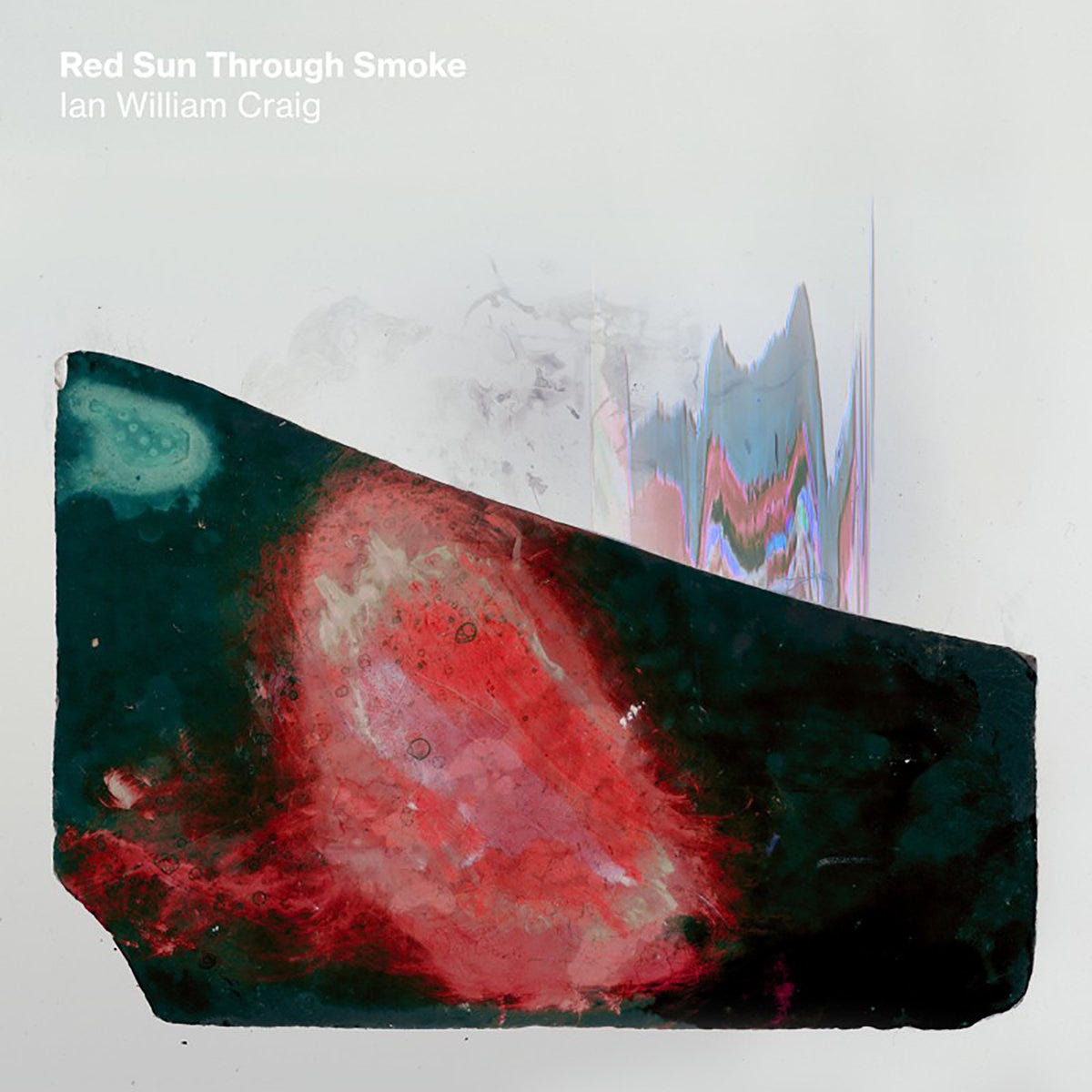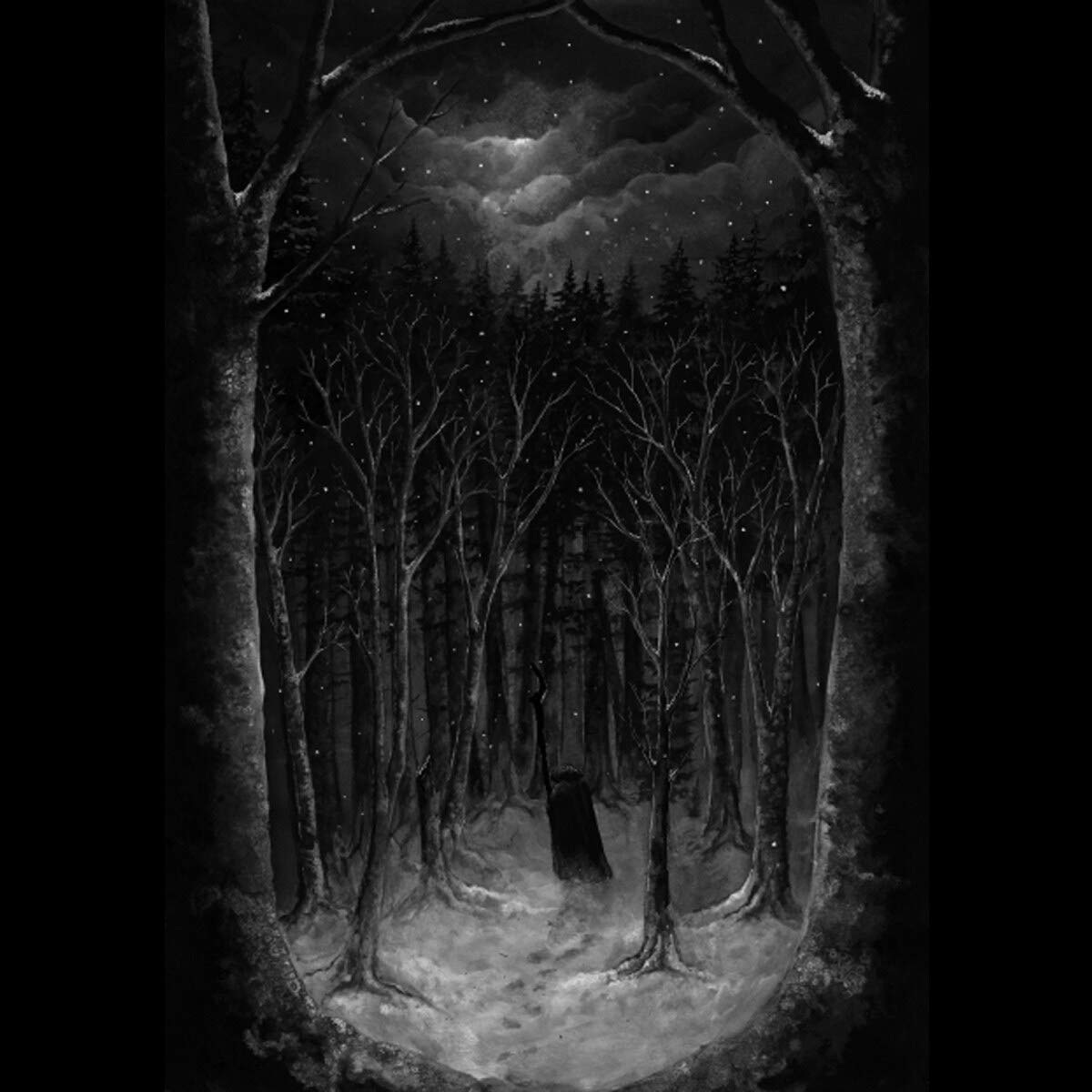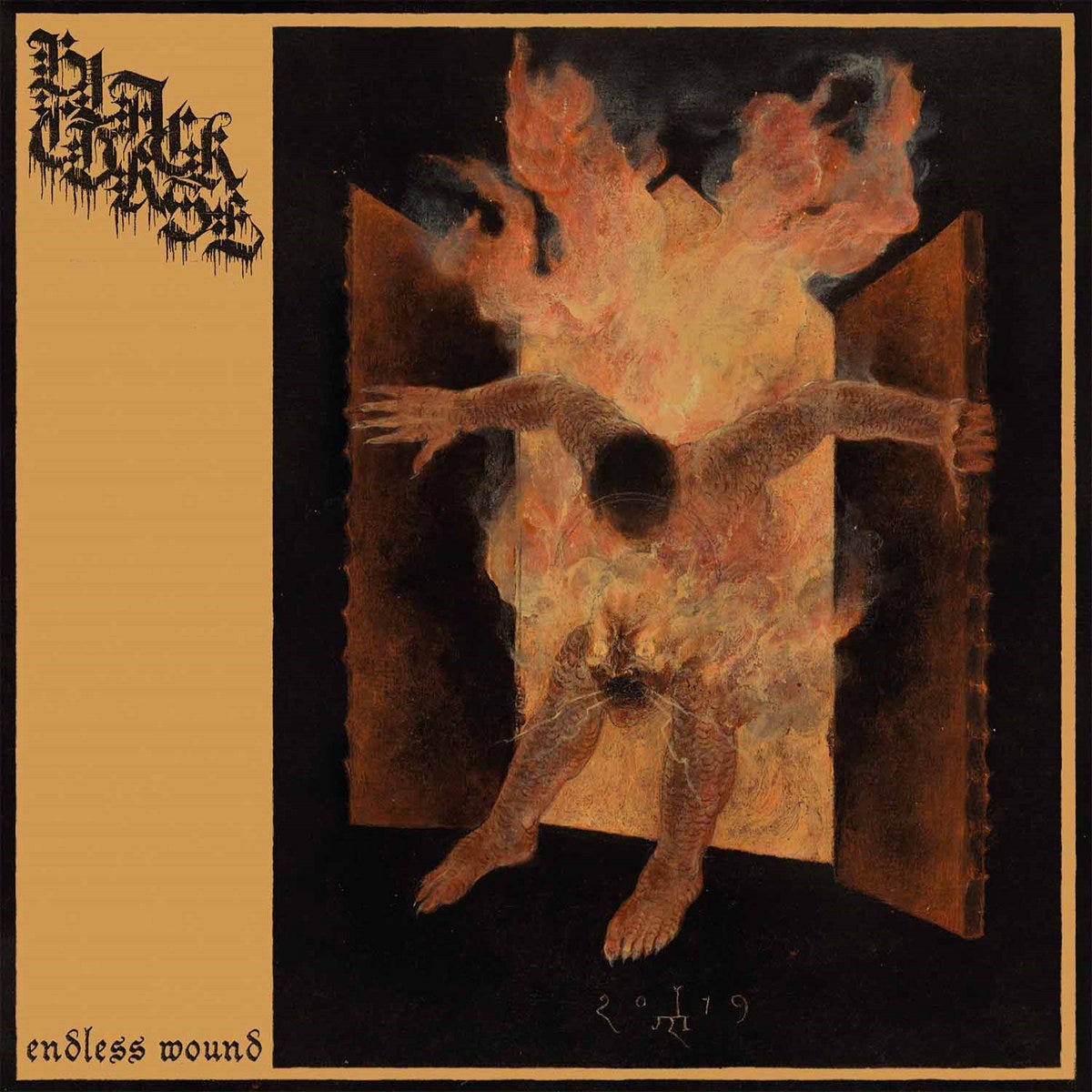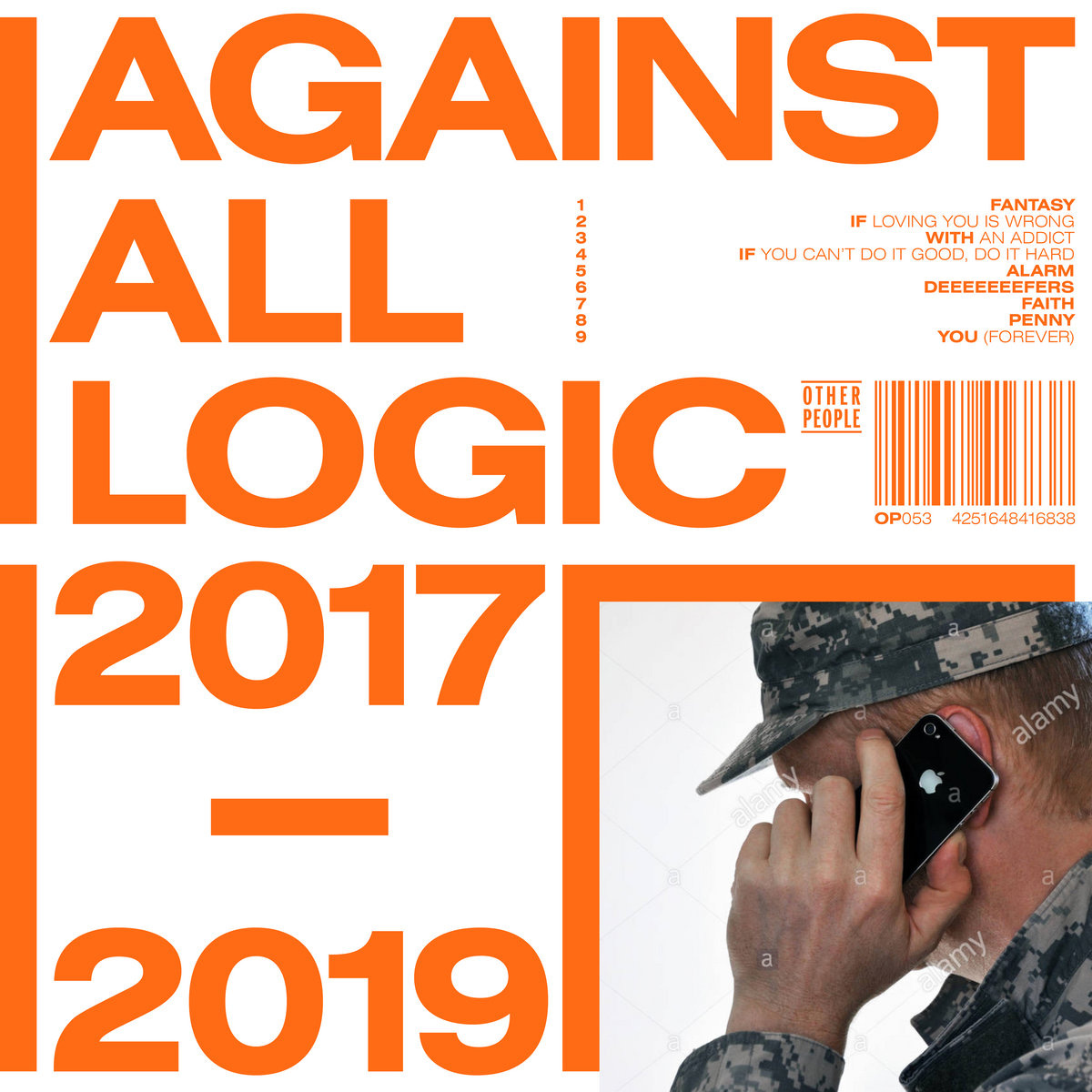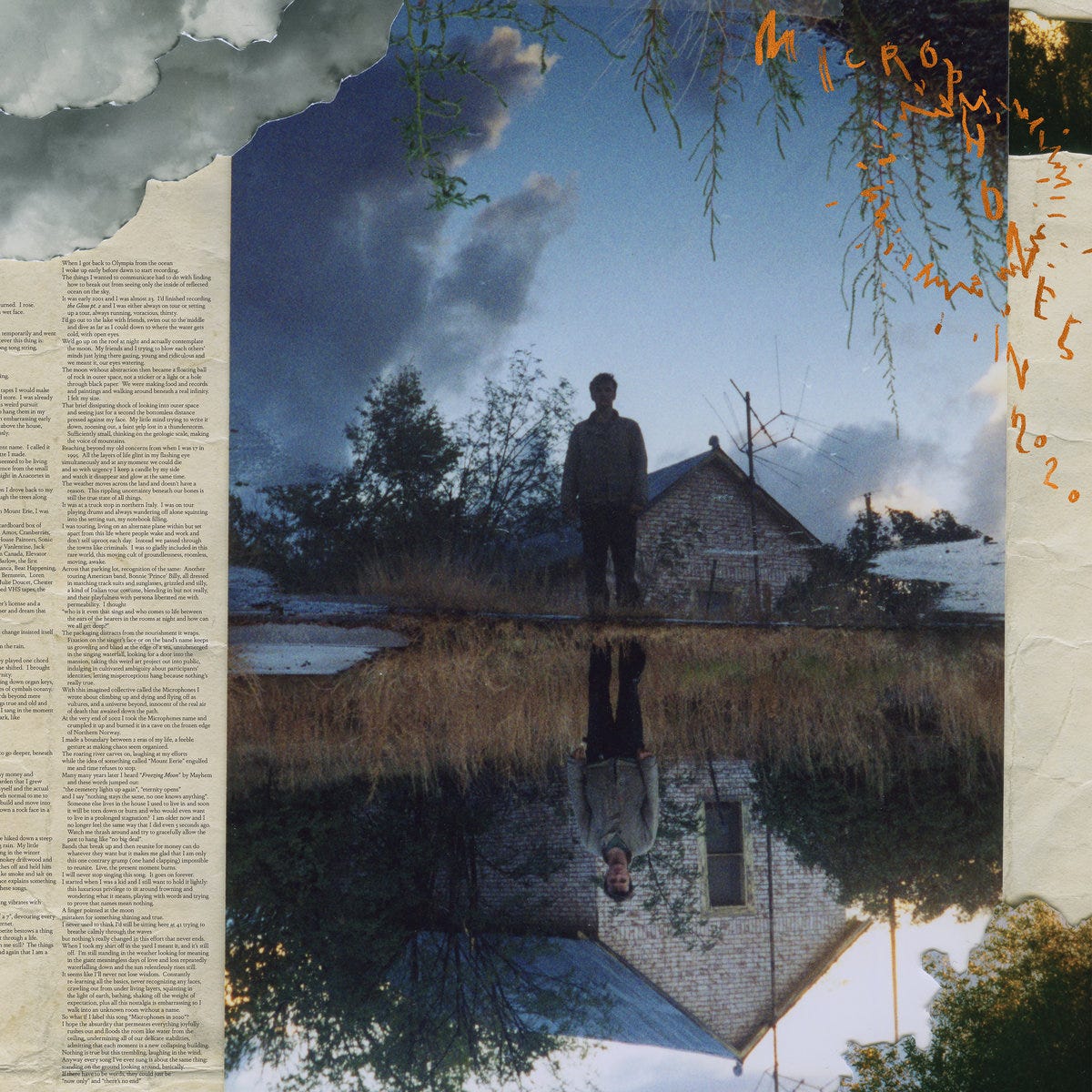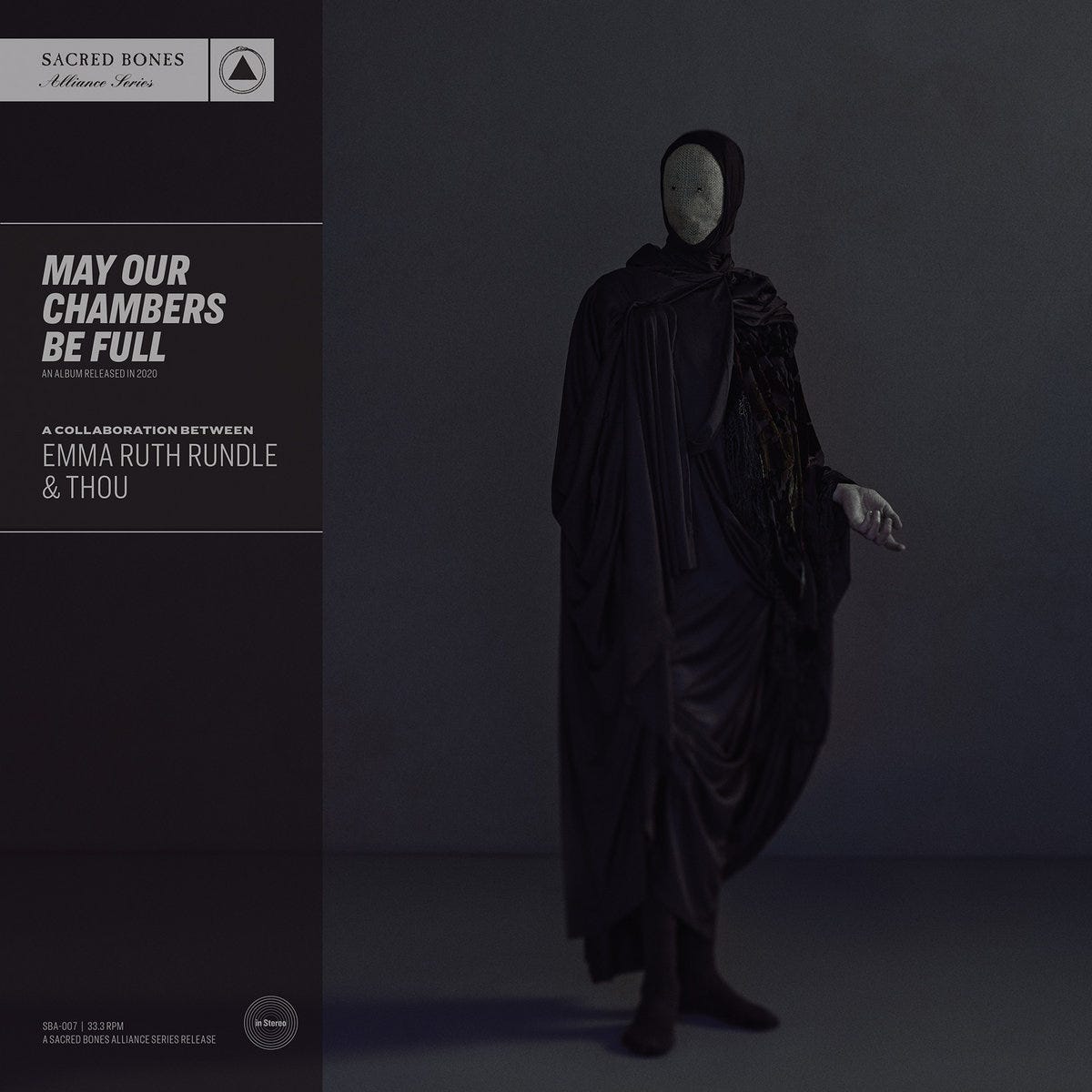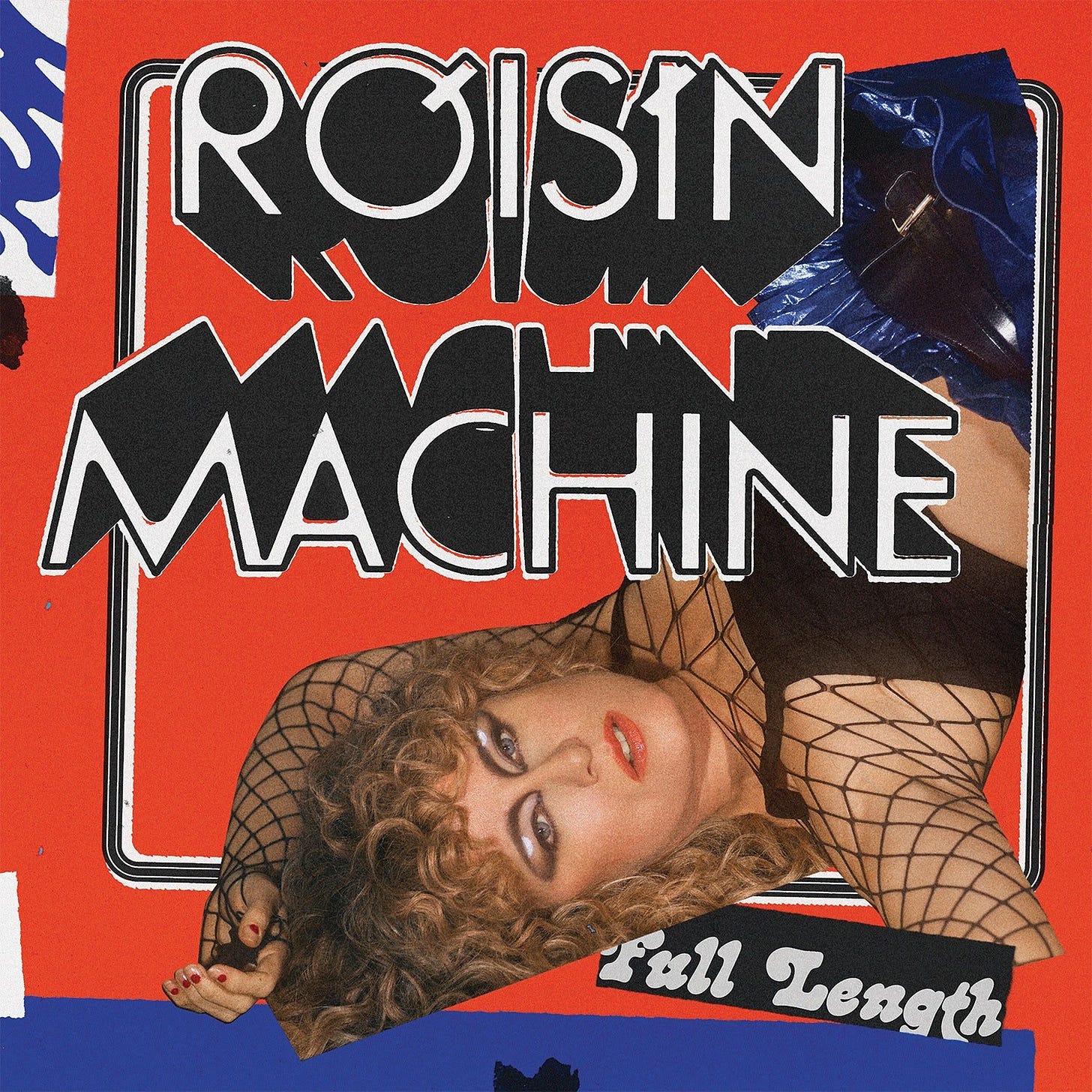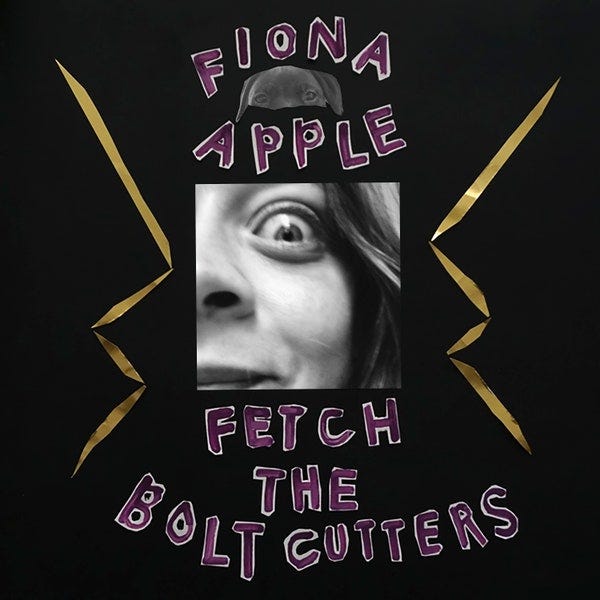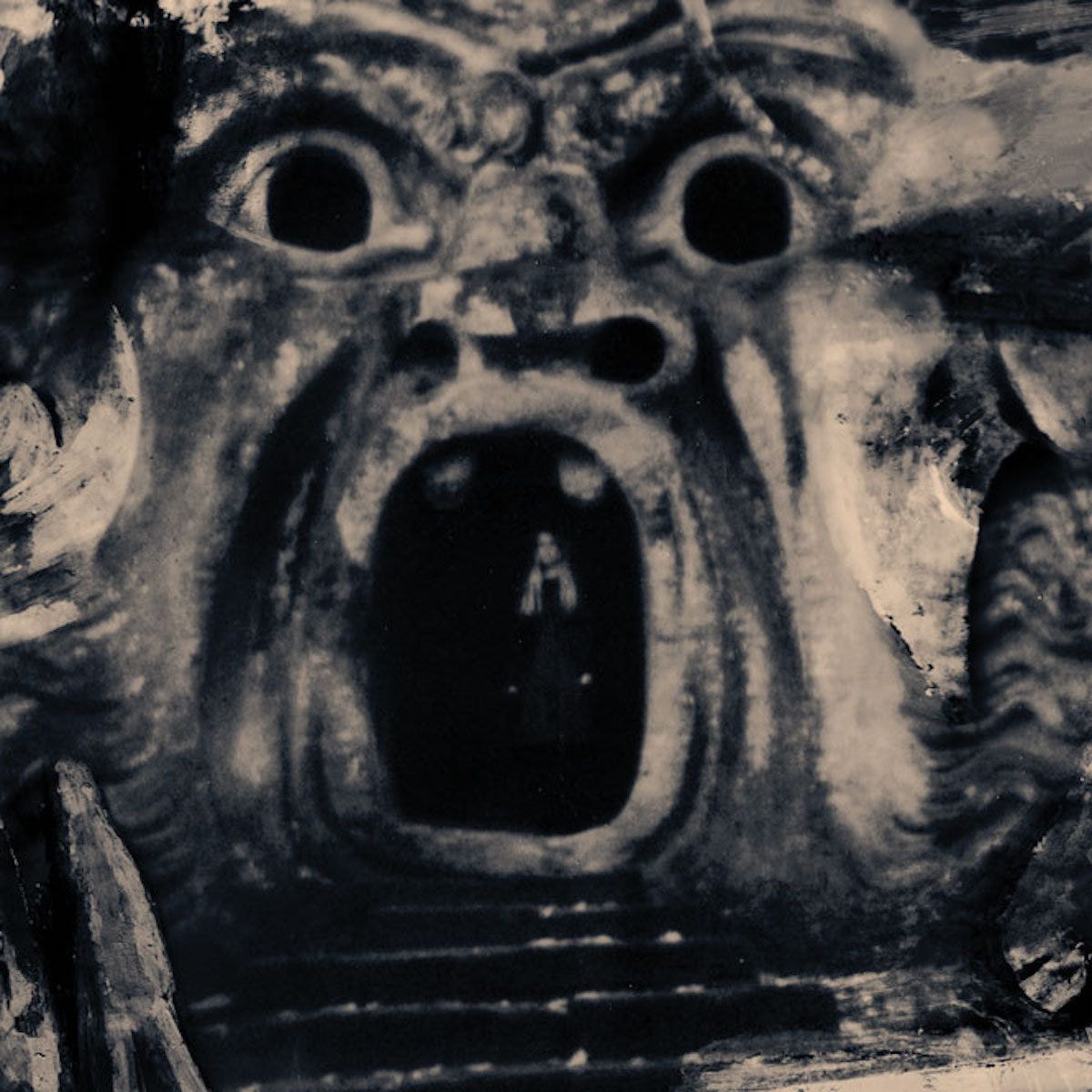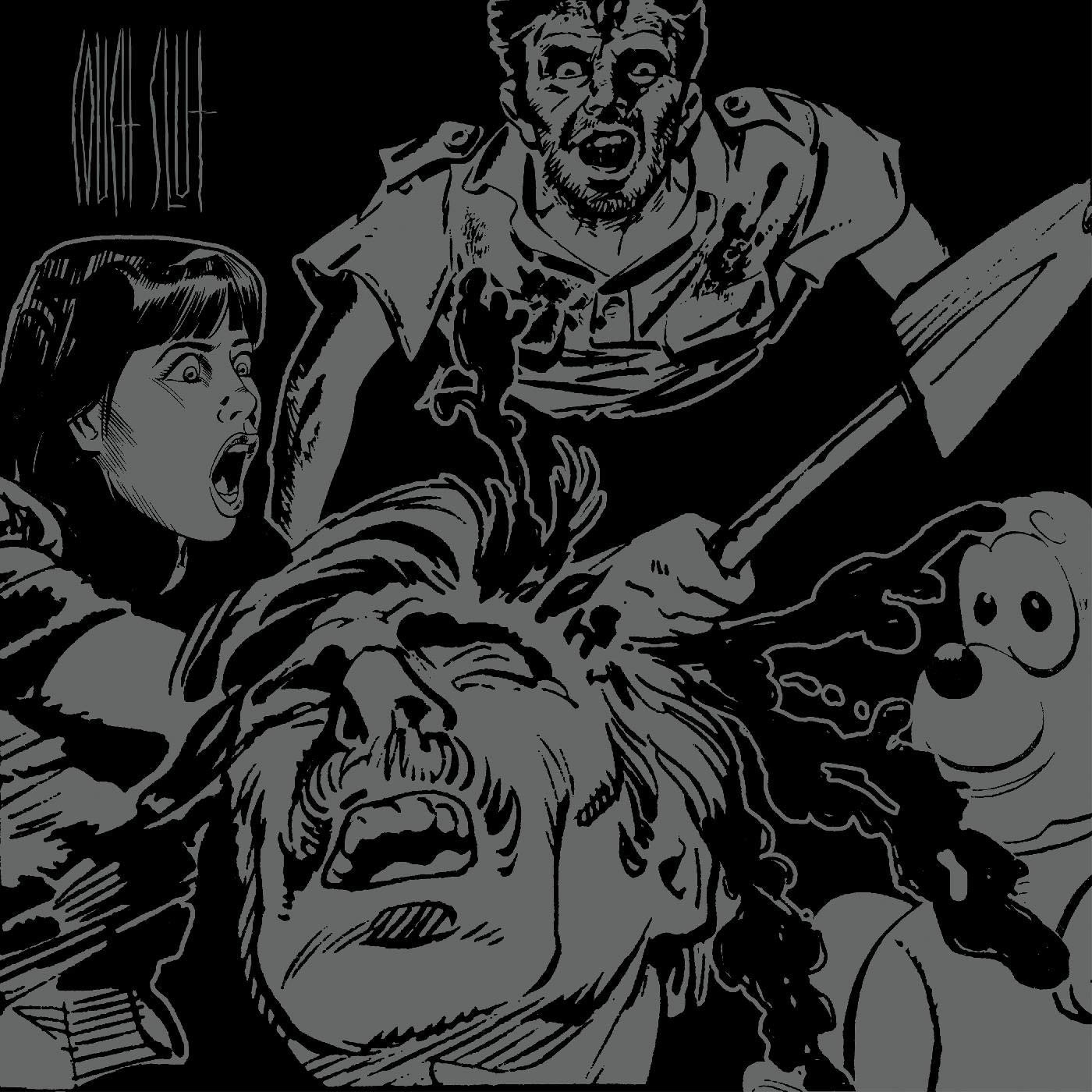Alright, I’m getting to publishing this late, and I’ve put probably too much thought into it already! So here it is. These are the albums that made my miserable little 2020 a little bit less miserable. Art’s cool that way.
We need to talk about Gecs. Love ‘em or hate ‘em, they’re made to be talked about. Though not every individual song here bangs, the collaborative nature of this album elevates it from an average remix album. Almost every song from its parent album is reworked and expanded upon here, the longer and less accessible format granting Dylan Brady and Laura Les the space to test the limits of each sound they explore. 100 Gecs have proven to be an acquired taste, but for those who are interested in the culmination of aesthetically powerful though critically derided music of the 21st century (here’s looking at you, nightcore), ...the Tree of Clues is for you.
Israeli noise legend Meira Asher collaborates with Eran Sachs and strikes gold yet again. Much of Asher’s work is potent and political, and this cassette is no exception. The Last Shall be First was released on May 5th 2020, “the anniversaries of: 69 years of Israeli state occupation of Palestine, day 21 of the Palestinian prisoners' hunger strike, the death of Bobby Sands who died on day 66 of his hunger strike in 1981” as per the album’s Bandcamp page. It’s a pounding slab of death industrial and sounding alarms befitting for the struggles they represent.
Rina Sawayama has been making noise for a minute now with her brand of hairbrush-as-microphone pop rock, and her debut album delivers on this premise. Intensely hooky and substantive as well; I’m particularly fond of this album’s slight alternative metal edge, as it provides an opportunity to show off Sawayama’s vocal range in a way that standard dance-pop can’t. Sawayama is a cohesive record despite its eclecticism, giving us different sides of an original voice I look forward to hearing more from. Pop girlie to watch for the rawring 2020s (fuck sorry I’m trying to delete it).
I can’t fully express just how intimate and comforting this record is. Mydata is about as colorful as the album cover implies, warm and intimate and inviting. Katie Dey’s voice is so well-suited to the orchestration of her music, aided in part by Ada Rook’s mastering. I encourage first listeners to spend some time with this one — the more I search within it, the more wonderful surprises.
I’ll just come out and say it: I’m an OPN with vocals apologist. Much of his material since 2015’s dark Garden of Delete has been in the form of fractured pop music: distorted samples, abrasive broken transmission interludes, and what sounds like radio-friendly music of another era bursting through the static. One of my favorite elements of Daniel Lapotin’s work has been the aggressive anachronism in the sounds he works with, and that’s as present as ever here. “I Don’t Love Me Anymore” is a snotty little pop-punk anthem from another world that was not intended for my ears, “The Whether Channel” a vast and spacious world unto itself that employs cloud rap shockingly well, and I’d be remiss not to mention his touching duet with The Weeknd, “No Nightmares.” An underrated gem from this year in my eyes.
I can’t lie to you, dear reader: I have a weakness for basketball snares. If you like deathcore, or decidedly do not like deathcore, you know exactly what I’m talking about. Something about the combination of these drum sounds and the absolutely muddied engineering makes Cameron McBride’s third record under the Methwitch monikor (excellent name) intoxicating to me. Perhaps the most brutal and unrelenting album I’ve heard in 2020.
An immediate classic breakup album. Lianne La Havas earns its self-titled-non-debut status, not an easy feat. Touches of psychedelic guitar floating above “Courage,” the groove of “Read My Mind,” the best version of Radiohead’s “Weird Fishes/Arpeggi” released this year, there’s so much to like about this album. La Havas displays impressive vocal control, utilizing her vibrato to emphasize the pain that is so central to this record, and don’t even get me started on her guitar playing. Essential.
Witch house has always been a strange little movement/era/I don’t even know. It was inescapable and obnoxious and it petered out after Salem’s polarizing debut King Night lost its hype. It’s a genre that had a lot of potential despite its grody bedroom aesthetics, and lo and behold: 2020 has brought us a second Salem album. And why not? This decade is a better time than ever for the project to continue its exploration of murky trap percussion with ethereal washes of lo-fi fuzz, fitting snuggly in a collection of Drain Gang and Wicca Springs projects. Although the record opens with Salem’s trademark pitched down rapping, Fires in Heaven takes a step back from the grittiness and embraces elements of pop and dance music in ways I wouldn’t have expected. A truly pleasant surprise in a year of horrible ones.
Anyone who considers themself a fan of the darker sides of hip hop needs to do themself a favor and listen to this Backxwash album. The sheer confidence in her deliveries and flows is so dazzling, and that’s not even taking into account how masterfully produced this record is. She creates an atmosphere so murky that it’s hard to believe there’s any world left after all the ruination and destruction. I don’t know if I’ll ever get Devi McCallion’s chorus in “Spells” out of my head.
Birthmarks is proof that music does not have to be dense or deliberately atonal to be genuinely unnerving. Perhaps it’s the album cover, but there’s just as much credit to be given to the dusty ambient pop of the album itself, a beautiful diamond covered in dirt. A must-listen for fans of artsy women writing ballads about body horror.
What struck me most about this Bing & Ruth record was how different it was from other records in their discography; while I’ve previously associated them with a delicate fragile ambiance aided by piano and drones, Species favors keyboards and minimalist song structures and creates a whole world unto itself. It’s a record bursting at the seams with life, as shown by these song titles (“Body in a Room,” “Blood Harmony,” “Live Forever”) and the harmonious tone of the record once you get past the eerie intros and outros. Makes me glad I’m here to listen to new music.
What a delight! The album cover for New Sounds is absolutely perfect for the music within: fun, rollicking, adventurous electronic music. Oliver does not focus on one idea for too long at any point in the record’s hour-long runtime, careening through techno, glitch, ambient with ease and glee. It is dense, but this is not necessarily a bad thing. There are moments where the atmospheric beatboxing(!) reminds me of the sort of experiments The Art of Noise and Boards of Canada were toying with in the late 80s. But this is clearly the work of someone on the internet in 2020 who knows a shit-ton of niche EDM aesthetics. I didn’t even know what car audio bass was until I researched this! Effortlessly cool, and I mean, look at that little guy.
Fuck your frosty Norwegian forests. Kaatayra, also known as Caio Lemos, is a Brazilian black metal musician who’s proven to be quite prolific, releasing four albums of his solo material in two years. This record in particular is an adventure -- shapeshifting atmospheric black metal with small touches of sertanejo de raiz deftly woven into the album’s sound. "Miséria da sabedoria" is a behemoth of a track, clocking in at 26 minutes and not wasting a moment of its runtime. A genuinely thrilling experience.
I’ve been wondering what kickstarted the nu-disco revival of 2020. Is it just chance that both Kylie Minogue and Róisín Murphy emerged from their canopy beds to release dance albums this year? Is it yearning for the music that was born from the clubs we are so deprived of? Is it the logical next step for the 80s revival that will never fucking die? Whatever it is, Jessie Ware has worked magic with this trend. What’s Your Pleasure? boasts a delicious sound, working with elements of boogie, house, and funk. Peak night driving music, peak glamming up before going out music, peak post-COVID fantaszing music. The energy level and mood is fairly homogenous, but the earworm hooks ensure that each song will burrow its way into your skull, like a sleek and sexy drill. That’s my pleasure.
The sheer Mapplethorpity of the single and album art for this record gave me a hint of what Perfume Genius’ fifth album would be like. Songs like “Your Body Changes Everything” and “Nothing at All” are robust and continue the sonic journey Mike Hadreas has been on for a while now, each record incorporating new influences and beefing up his sonic palette stemming all the way back from his lo-fi MySpace demos. It’s dark, it’s romantic (“Jason” is devastatingly sexy), it’s a bit less shiny and optimistic than 2017’s No Shape, but I think it’s better for it. I’m especially floored by Hadreas’ vocal performance on this record, hearing low notes I don’t think I’ve heard from him before. He can’t keep getting away with it!
My first impulse was to call this record, well, magical and spellbinding, because it is. Surreal and haunting but never oppressive or intrusive, Nick Storring tells a beautiful tale of melancholy and mystery with his electroacoustic arrangements. It’s a shame how unsung modern classical music has become when there are still composers pushing the boundaries of genres and forms of music to this day. My Magic Dreams Have Lost Their Spell, perhaps, but music has not.
Moor Mother and Mental Jewelry team up for my favorite punk record of the year. Each song is tight, abrasive, and politically potent. The dissonant no wave guitar tone and the energetic drumming are all stellar, but it’s Moor Mother’s gruff vocals that tie the whole project together, her lyrics dealing with alienation and political disenfranchisement. A bit of a downer, but perfect for a masked doomer walk to the grocery store.
Some ambient new age magic made by Ana Roxanne, someone who hasn’t been making music for a while but has consistently impressed me with every sonic landscape she’s built. I can hear the influence of electronic pioneers of Delia Derbyshire in the abstract concepts explored in these sparse, soothing songs. I mean this as a huge compliment when I say I love to nap to Because of a Flower, the dreams it brings are so sweet.
Rock music might be dead, but it can be necromanced if need be. HMLTD’s debut LP West of Eden is a daring first entry, an eclectic and energetic collection of cheeky glam-synth-art-punk throwbacks that are both catchy and challenging. The lyrics are consistently grim and apocalyptic but the performances are fun and referential enough that it never feels like a chore, though they do manage to cram a shocking amount of ideas into its runtime. Perhaps they could have excluded the trap interlude in “To the Door,” but who am I to judge? “Satan, Luella & I” is an instant classic as far as I’m concerned. Excited to see where these rambunctious guys go from here.
Hypnagogic pop from the depths of Hell! Although this record is also ethereal, dreamy, all the other ooey-gooey words you might associate with this kind of retro indie pop, it’s also a fucking racket. “I Want You to Suffer” is the real opus here, with friendly yet unearthly background vocals simmering in the background until gusts of harsh noise explode and take the track over, making the song and album’s menacing intent clear. There are plenty of sugary hooks and sweeter textures to be found, but there’s a lot of sour to be found with it.
Much as we forget this, dance music is and has always been political — whether we’re considering the criminalization of raves, 1979’s Disco Demolition Night, or the disenfranchisement of Black producers while their white counterparts elevated dance music to “intelligence,” this has always been true. According to Tygapaw, “Get Free explores what it is to actively dismantle imagined limitations, to eradicate the bondage of self-doubt, to forge ahead with love and light, to liberate the body and mind.” The libertine spirit of Detroit techno shines through on this record, a remarkable debut with a steady pulse perfect for the clubs of our bedrooms.
“Blinding Lights” has remained a radio staple and topic of conversation since its release in November 2019. I don’t mention this to celebrate his success — Abel Tesfaye has been a household name for a few years now, “even though he’s Canadian.” What’s notable about this is the demonstrated longevity of that single and its parent album. The pandemic has rendered the album cycle somewhat obsolete; without the promotion of tours, fans aren’t as encouraged to listen to music intently to sing back in concert, and listeners move on quicker to the next AOTW. But After Hours has more than just a #1 single, it’s a marvelously produced record that has atmosphere, dynamics, and range, not easy for an album this immediate to achieve. The moment the liquid funk beat of “Hardest to Love” dropped on first listen, I knew I would be talking about this album come the end of the year. Important.
It’s another great Deftones album! You already know what it sounds like: dreamy shoegaze guitars, nu-metal breakdowns, dense dense dense. Ohms is at times just as aggressive and gorgeous as their previous classics, and if you like those there’s no reason to skip this one. No, they don’t reinvent the wheel here, but I’m fine with the wheel they reinvented in the late 90s.
Natalia Lafourcade explores many different types of Mexican folk music on this record, and the results are stunning. She incorporates both newer and more traditional styles throughout, making the record fairly eclectic while never losing sight of its passion for Mexican music. The album also features a ton of collaborations, all of which gel very well with Lafourcade’s impeccable musicianship.
Dum dum meathead music. Sometimes it’s that simple. Incredible record.
Inner Song is a kaleidoscopic record of shimmering monochromatic patterns, in which Kelly Lee Owens truly makes a name for herself as one of the leading forces in the electronic-driven side of art pop. Owens’ upbringing in the United Kingdom feels significant to the dreamy/dreary mood of the record, best exemplified by the divisive centerpiece “Corner of My Sky,” featuring John Cale monologuing in both English and Welsh. Not all of the album is as lethargic, though; the heart of the album lies in tech house anthems like “Night” and “On,” which are made for wistfully gazing out a subway window, or, in a better world, rolling on the dancefloor.
Okkyung Lee is a composer whose work has long interested me, though sometimes it’s been too obtuse or forward-thinking (whichever floats your boat) for me to fully appreciate, but that was before Yeo-Neun. The elements of Korean classical music differentiate this record both from your typical somber modern classical record and her wn previous work. It’s a cold, wintry record that’s perfect for gazing out the window at the snow sitting ever-so-still in the darkness of 2 A.M. Well, except “Another Old Story (옛날이야기)”, that’s for the sunny morning after.
Peanut butter and chocolate; pork chops and applesauce; Merzbow and Boris. Far from their first collaboration, 2R012P0 is in part a continuation of ideas from Boris’ 2019 record LφVE & EVφL. Songs from that project show up here beefed up with Merzbow’s layered noise, as well as some Boris standards(?) like “Absolutego.” If you’re a fan of either artist, or have an interest in what the most forward thinking artists in the Japanoise scene are up to these days, I recommend you check this out, so long as you TURN IT UP LOUD.
Marc Richter, also known though this project as Black to Comm, cements himself as the reigning king of truly cursed sound design. On Oocyte Oil & Stolen Androgens (brilliant title), he experiments with elements of spoken word and poetry amidst his usual torture chamber dark ambient textures. The combination works splendidly; closing track “Rataplan, Rataplan, Rataplan (Arms and Legs Flying in the Air)” is a poem that I would consider the focal point of this record, elements of it appearing from out of the mist throughout. At times it gets quirky and stilted, others simply gorgeous. Concise and bewildering.
Age of Adz fans stay winning with this one. I definitely see some of the criticisms of how bloated The Ascension is, given how uniform much of the sound is, but I really don’t mind it. Opening track “Make Me an Offer I Cannot Refuse” is one of my favorite songs of the year, a breathtaking anxiety attack set to music about the 2020 election. The glitchy indietronica sound is used for all its worth, sometimes to cartoonishly exaggerated heights on some of the more epic numbers, and this is what I love from Sufjan: he blurs the line between the tender and the bombastic flawlessly.
Avant-garde composer Susan Alcorn’s The Heart Sutra was recorded in 2012, a hypnotic piece combining elements of free folk, Persian classical music, and free improv (something she’s more known for) in one dreamy amalgamation. Check out “Suite for Ahl” if you want to see if your tear ducts still work.
Perhaps this is a hot take, but I slightly prefer Immersion to Primitive Man’s other widely celebrated album Caustic. The shorter runtime makes for an even more condensed, isolating experience than over an hour of similar music. But to be clear, Primitive Man is consistently pumping out some of the filthiest sludge metal ever committed to tape, and either way, I have to love and respect that. This album makes me want to shower.
Simply a classically good set of chamber folk songs from singer/songwriter Laura Marling. Despite the anemic aesthetic the album cover gives Song for Our Daughter, the music itself is actually warm and soothing. Vocal harmonies, thoughtful lyrics in a sea of Spotify-core dreck, and some tear-jerking ballads all make this record a special one.
God, I love this bizarre creation. Wicca Phase Springs Eternal and DJ Døves join forces to create Ultraclub4k, an emo rap trance hybrid that eschews all senses of irony that people (mistakenly) ascribe to Drain Gang and adjacent acts, in favor of fully embracing the haphazard DJ mix vibe that is so derisively associated with trance music. Every song is punctuated by a “you are now listening to” tag, adding to the surreal experience. I’m not as much of an emo rap afficianado, but I still can appreciate Wicca Phase’s verses as well.
Truth be told I put off this record until the very end of the year — I hadn’t enjoyed much of Mac Miller’s music that I’d heard prior to his untimely passing, and I was worried that I would still feel the same way about his posthumous release Circles, and nobody wants to be that guy! But this is a truly great work, certainly in part thanks to Jon Brion’s production and signature orchestration (you know, that end-of-a-PTA-movie goodness), but Miller himself outdoes himself vocally and lyrically here, making clear the potential that was lost and his mindset at the time of recording this friendly, ghostly record. It feels like remembering the last conversation you had with a lost friend, and being thankful that it was a happy memory.
Brooklyn experimental rock outfit Sunwatchers drop my favorite album of theirs yet with Oh Yeah?, a sprawling and rollicking adventure. Their playful mix of acerbic math rock and Krautrock hypnotics is in full force here, each song building and shifting and changing with the masterful performances of everyone involved. “The Earthsized Thumb” is a, well, earthsized 20-minute epic that leaves me captivated for its entire duration, and the rest of the record is just as exhilarating. I love all sorts of experimental music, but it’s nice to see someone making stuff that just fucking rocks.
Lyra Pramuk’s classically trained voice is a force to be reckoned with. Her first record, Fountain, quickly calls to mind Björk’s a capella venture Medúlla in the way it subverts both the aesthetics of recorded a capella music and the ever-nebulous “art pop” category, though Pramuk’s voice and production are superior. An utterly trance-inducing release, one that lulls the listener into a sense of dreamlike security to shock them with some new abstract, post-minimalist idea. Dense and austere, and endlessly beautiful.
Bleak, hopeless, and hopeful. “Forged in trauma and an intense, bewildering slew of mixed emotions, Ian William Craig has created an album of incredible beauty, sadness and depth. 'Red Sun Through Smoke’ is a profoundly moving album, a standout record in a prolific body of work that shows no sign of faltering.” This quotation, as well as an in depth explanation of the events that lead to Craig recording this record can all be found on his Bandcamp page. If I think about “Weight” too much I will cry, so I’m leaving it at that.
An arresting, all-encompassing cocoon of a lo-fi black metal record. I won’t lie, I usually turn up my nose to black metal that sounds like it might have been recorded in a tin can, but the production really works to its advantage on Im Wald, enveloping the listener for two hours in a wintry, haunted forest. I’m especially fond of the keyboards that make brief appearances toward the beginning of the record, before we truly descend into the darkness Paysage d’Hiver is known for.
Blackened death metal for the ages. Endless Wound is just that — an infernal barrage of riffs and blast beats. One of my usual criticisms for this type of music is that there isn’t enough variation in sound to make the whole experience memorable, but Black Curse utilize so many different styles of metal (war metal? aren’t you from Denver?) that it remains exciting and enjoyable with repeated listens. When it’s fast, it’s face-melting. When it’s slow, it’s doomy and languid and filled with tension. If you enjoy Blood Incantation but want something ever so slightly more old school, pick this up immediately.
Nicolas Jaar has been incredibly prolific in these trying times. He released two albums under his name, Cenizas and Telas, which I thought were fine efforts but a bit hampered by Jaar’s own ambitions. He also released an EP for the Against All Logic project, but 2017 - 2019 is his crowning achievement in 2020. Though the segues between songs are liquid-smooth, the tracks themselves are caustic; “If You Can’t Do It Good, Do It Hard” features an unforgettable performance from Lydia Lunch that makes me want to break a window every time I hear it. AAL benefits from straying from their outsider house origins, as I find Jaar’s production more suited to techno and industrial soundscapes. The sampling on this record is phenomenal as well, ranging from Beyoncé to David Bowie without feeling too coy about those brave choices. Paranoic dance music for the dystopia.
First things first, this is the album cover of the year. It looks like Eartheater is dropping the clanging-pots-and-pans deconstructed club tape of the year, but what lies beneath is an eerie collection of folk songs replete with beautiful strings and haunting vocal performances. “Below the Clavicle” stands out, a creepy little song that a Victorian doll might sing were a ghost trapped inside her for decades. There are still elements of glitch and noise peppered throughout, and Phoenix’s lyrics sit in that space between erotic and uncomfortable, but I also find much of the record to be quite soothing in its own surreal way. Art bitches and Tumblr witches, this one’s for you.
If I’m lucky, the last thing I’ll see as my lights are fading will be a montage of the happiest moments of my life set to this three-hour tour de force. DJ Sabrina the Teenage DJ has been making some of the boldest modern house music this side of Bandcamp. 180 minutes of material is intimidating, to say the least, but it’s hard to complain when it’s 180 minutes of great material. Listening to Charmed is joyriding through the most exuberant kinds of dance music there have ever been, all held together with DJ Sabrina’s signature samples of Sabrina The Teenage Witch. If you have a few hours to spare and love in your heart, you can’t miss this.
I don’t think we’d tolerate this sort of thing from anyone other than Phil Elverum. This was the year I delved into his work as The Microphones and Mount Eerie and I’ll be upfront: it was a slog. One of the most emotionally resonant, tender, heartwrenching slogs I’ve ever experienced, but a slog nonetheless. On this singular 40+ minute track, Elverum recounts the beginning of his music career, covering The Microphones’ and Mount Eerie’s gestation and the philosophical motives behind many of his creative decisions. There is a particularly resonant passage about seeing Stereolab in concert and how this inspired him to begin experimenting with drone music, an element that is very present here and elsewhere in his discography. He plays many of the “hits” lyrically as it were, taking his shirt off in the yard and such. For those who are already invested in his work, this is an absolute treat. If this is your introduction to Phil, take solace in the reminder that his work is meant to emphasize the harmonious smallness of himself and all people in our natural world.
Far and away my favorite pop record of the year. Charli XCX expands upon her vision of Pop 2 (the album and the concept, a sequel to pop music as we know it) with longtime collaborator A. G. Cook once again, this time in an effort to capture the anxious ennui that so defined the first few months of the pandemic (on this note, I can’t watch the music video for “Forever” without blubbering like a baby). “Pink Diamond,” “Anthems,” and my favorite hard trance tearjerker “Visions” all touch on subjects of isolation, longing, pent up aggression, and the atrophying friendships we’re all experiencing in light of our inability to physically connect with those dear to us.
Another excellent collaboration, this time from sludge metal band Thou and singer/songwriter Emma Ruth Rundle. There have been hints of this languid, atmospheric take on metal in Rundle’s earlier work, what with all the gloom and doom, but hearing it fully realized like this is a real treat. It’s only 36 minutes, and is still as massive as metal albums twice its length. The back and forth between her haunting clean vocals and Thou’s standard crushing doom keeps this album captivating throughout. This record isn’t just abject misery, though (much as I love me some abject misery); it’s the ethereal spirit of ERR’s presence that is the heart of May Our Chambers Be Full, bringing passion to a dark and desolate landscape.
quaaludes leisure suit body glitter bush aquanet fishnet glamazon disco ball eightball I want something more easy sleazy catatonic sex toy love drunk goddess princess kaleidoscopic night drama go-go dance lapdance andrea true connection I want something more hypnotic compulsion erotic consumption nile rodgers deep throat does dallas glory hole black hole empty hole I WANT SOMETHING MORE
…Fetch the Bolt Cutters is [Fiona Apple’s] most raw and righteously angry release yet. It was easy to expect this album to have sociopolitical commentary, and it's there, but not in the "take down the Cheeto man" manner that so much "protest" art has become. She relates her personal anecdotes with the world around her, portraying a system of interpersonal relationships that make up a web of love and hate, and everything in between. Musically, it's at once challenging and immediate, experimental and catchy, hitting the sweet spot of boundary-pushing without alienating anyone who's been waiting to hear from her with bated breath since The Idler Wheel Is Wiser Than the Driver of the Screw and Whipping Cords Will Serve You More Than Ropes Will Ever Do. Apple's recent fondness of vocal chants and rich harmonies plays against her classic jazz-rock piano stylings in erratic harmony, swirling and dissonant and careening through ecstatic expressions of love and devotion down into insecurity and neurosis that hits especially hard during quarantine. … (excerpt, full review here)
What does it even mean to be lonely in 2020? Are we not all our own sailors on rafts in a turbulent sea, being shuffled away from each other by the enormous and uncaring waves? What makes my sadness so special? These are the questions that come to mind whenever I listen to Anna von Haussolff’s pipe organ masterpiece. It’s difficult to utilize a pipe organ in popular music without coming off as vulgar, but the tasteful production and minimalist songwriting choices justify every key played. No other instruments, no lyrics, no vocals. Just the solemn weight of loneliness and the sheer euphoria it gives way to, echoing through the holy halls of our bedrooms.
Who knew that what Couch Slut's already fully-formed sound needed was some good old fashioned rock 'n' roll drumming? Don't worry, they still made a record filled with sludgy agony, but the added energy of the faster tempos elevates them to a whole new level. Songs like "Carousel of Progress" and "Topless and Bottomless" are forces of nature, threatening to destroy every wife-beating chud in its path.
And that brings me to the lyrics and vocals from Megan Osztrosits. Holy fuck. She tells stories not only of the violence that abusive men perpetrate but the sheer stupidity and ugliness of their character. Hearing her scream "HE *beat* IS AN IIIIIIDIOT" in the beginning of "The Stupid Man" is so cathartic -- it's one thing to hear music portraying the fear and shame that comes with abuse, but it's another to feel that sheer vitriol. Another favorite is "In a Pig's Eye," a song about the futility of going to the police after being sexually assaulted. The last song mostly consists of a spoken word piece about a fucked up incident that starts with the main character and her friends getting picked up by some bikers at a McDonald's (the night has been documented here on Osztrosits' twitter).
I love listening to this album and feeling rage running through my veins. Despite its pessimistic at best outlook, there is something invigorating about hearing this fury so well translated to noise rock. Hell, it's even kind of a fun record to get pissed off and do the dishes to. Lord knows I can't wait for concerts to kick back in again and get bodied in the pit at one of their shows. This record is a crown jewel on an already impressive band's discography. Cannot recommend it enough.




